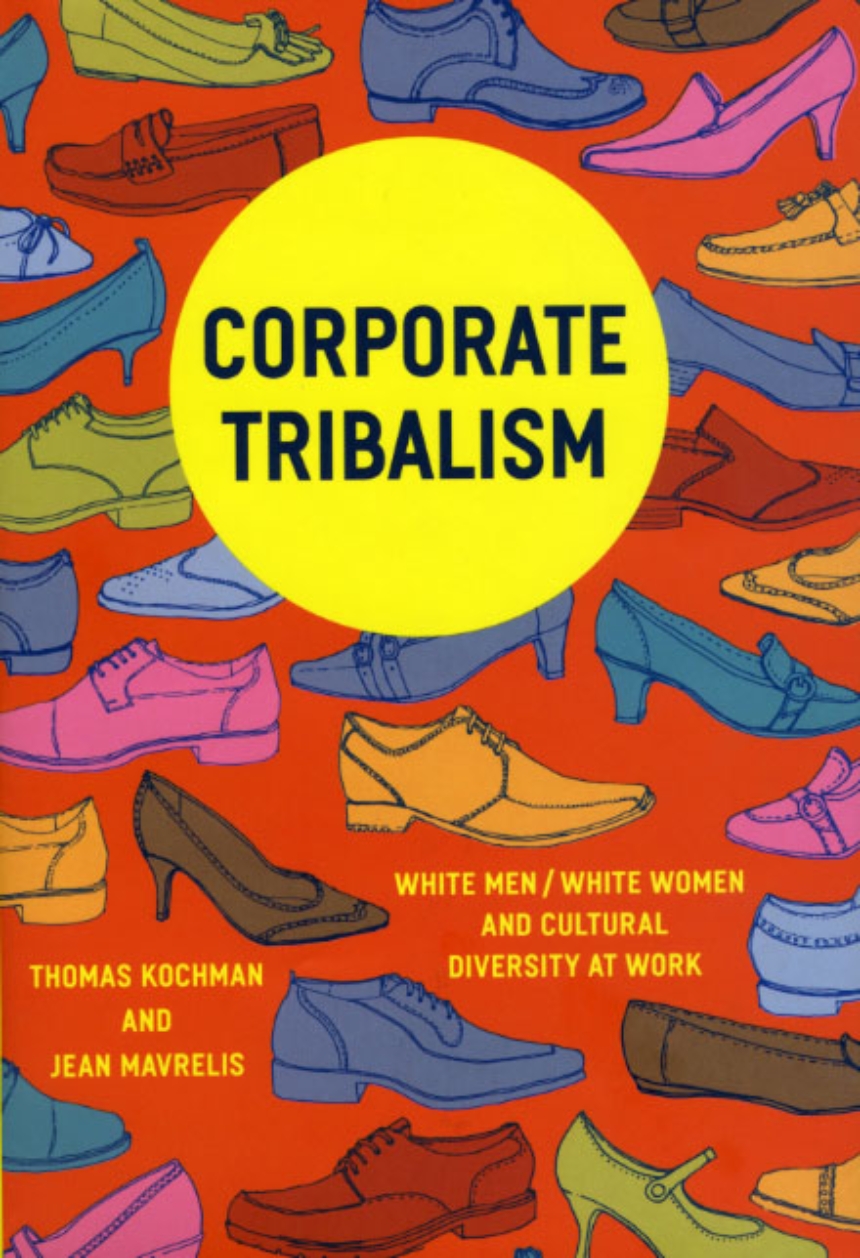Corporate Tribalism
White Men/White Women and Cultural Diversity at Work
Corporate Tribalism
White Men/White Women and Cultural Diversity at Work
The 2008 elections shattered historical precedents and pushed race and gender back to the forefront of our national consciousness. The wide range of reactions to the efforts of Barack Obama, Hillary Clinton, and Sarah Palin dramatically reflected ongoing conflicts over diversity in our society, especially in the venue where people are most likely to encounter them: work. As more and more people who aren’t white men enter corporate America, we urgently need to learn how to avoid clashes over these issues and how to resolve them when they do occur.
Thomas Kochman and Jean Mavrelis have been helping corporations successfully do that for over twenty years. Their diversity training and consulting firm has helped managers and employees at numerous companies recognize and overcome the cultural bases of miscommunication between ethnic groups and across gender lines—and in Corporate Tribalism they seek to share their expertise with the world. In the first half of the book, Kochman addresses white men, explicating the ways that their cultural background can motivate their behavior, work style, and perspective on others. Then Mavrelis turns to white women, focusing on the particular problems they face, including conflicts with men, other women, and themselves. Together they emphasize the need for a multicultural—rather than homogenizing—approach and offer constructive ideas for turning the workplace into a more interactive community for everyone who works there.
Written with the wisdom and clarity gained from two decades of hands-on work, Corporate Tribalism will be an invaluable resource as we look toward a future beyond the glass ceiling.
256 pages | 4 figures, 4 tables | 6 x 9 | © 2009
Cognitive Science: General Works
Language and Linguistics: Anthropological/Sociological Aspects of Language
Sociology: Occupations, Professions, Work, Race, Ethnic, and Minority Relations
Reviews
Table of Contents
Preface
Introduction
I. CWM and the New Social Order
Chapter 1. CWM and Corporate Diversity Initiatives
Chapter 2. Americanization
Chapter 3. Social and Cultural Conflicts in the Workplace
Chapter 4. CWM Cultural Style at Work
Chapter 5. Other Cultural Comparisons and Contrasts
Chapter 6. Multiculturalism and Social Inclusion
II. CWW at Work
Chapter 7. Cultural Underpinnings
Chapter 8. CWW and Women of Color
Chapter 9. Gossip and Community
Chapter 10. Other Cultural Contrasts and Lessons Learned
Chapter 11. Styles of Conflict Resolution
Chapter 12. Networking and Getting Ahead
Chapter 13. Ten Things That CWW Can Do to Befriend Women of Color at Work
Chapter 14. The White Woman People Pleaser Tale of Woe
Afterword
Notes
Bibliography
Index